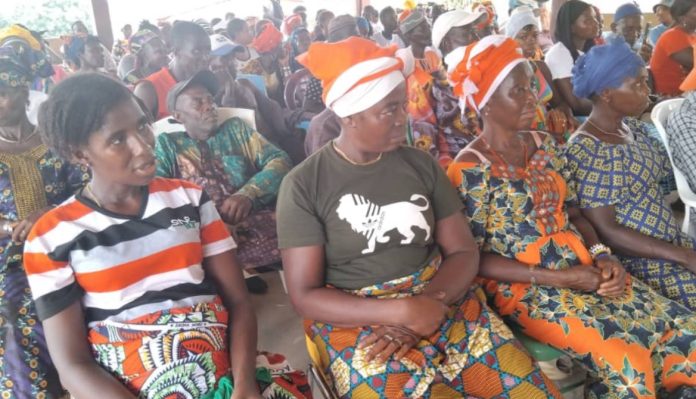Abass Sesay, AYV News, May 30, 2025
The Girl Child Network Sierra Leone, in collaboration with RAES and AmplifyChange, has officially launched a wide-reaching community mobilisation and advocacy campaign aimed at ending Female Genital Mutilation (FGM), tackling Gender-Based Violence (GBV), and promoting Sexual and Reproductive Health and Rights (SRHR) in communities across Bombali district.
This initiative, which brings together community stakeholders, survivors, health advocates, and former practitioners of FGM, seeks to create sustained dialogue and grassroots action against deeply rooted cultural practices that harm women and girls.
Speaking during the campaign launch, Anita Koroma, Country Director of Girl Child Network, highlighted the devastating social, health, and economic consequences of FGM and GBV. She stressed that such practices are not only violations of human rights but also barriers to education, health, and economic development for women and girls.
She stressed that FGM and gender-based violence have long-lasting consequences, affecting survivors physically, emotionally, and economically. Therefore, she went on, they raised awareness to challenge harmful norms, and to empower communities to make a change. Girls deserve a future free from violence and fear, Anita stated.
Joseph Sowa from Keep the Drum Lose the Knife, a coalition member and vocal activist in the fight against FGM, drew attention to the serious health risks associated with the practice.
He pointed out that FGM contributes significantly to maternal mortality rates, particularly in rural areas where access to medical care is limited.
He explained that many people are unaware that FGM can lead to chronic pain, infection, childbirth complications, and even death. The silence around it must end. Everyone must confront the realities and protect women and girls generally, he urged.
In a moving testimony, Sampa Kuthie Koroma, a former FGM initiator, shared her journey of transformation and regret. Having participated in the practice for years, she now advocates for its total abolition.
“I was once part of the problem, but today I am part of the solution. I deeply regret being an initiator. I have abandoned the practice, and I have made a personal commitment that none of my children will ever support or engage in it,” she declared.
Another powerful voice in the campaign was KadiatuKamara, a survivor of FGM who was forcibly initiated at just 10 years old. Now in her 50s, she recounted the trauma she still carries.
The campaign also includes community education sessions and direct engagement with traditional leaders, parents, and youth groups to encourage dialogue, provide accurate information, and promote alternative rites of passage.
As the campaign gains momentum, the Girl Child Network and its partners are calling on government authorities, religious and traditional leaders, civil society groups, and the general public to join the fight against harmful practices.
The organisation believes that sustainable change can only happen through community-driven solutions and collective responsibility.
It is not just a women’s issue—it is a societal issue, Koromaemphasised. Society must unite to protect the rights, health, and future of every girl in Sierra Leone, she added.

